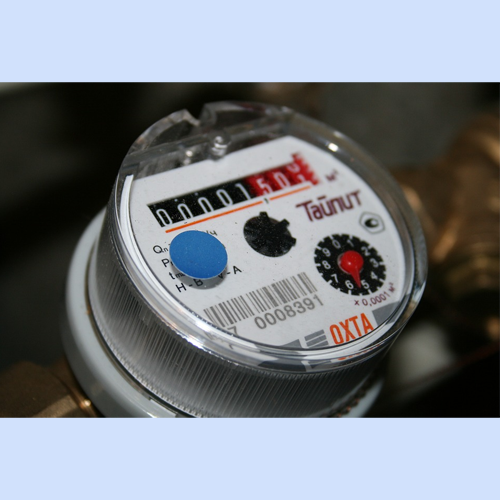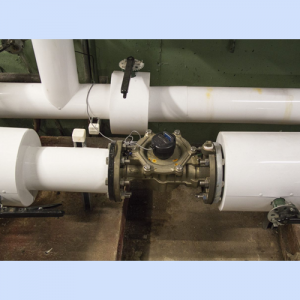
Reconciling citizens' expectations with government requirements can sometimes be a major challenge for municipal managers. This is particularly the case with regards to water meters, where municipalities must comply with the requirements of the “Stratégie québécoise d'économie d'eau potable” (SQEEP).
Therefore, some are required to install water meters in non-residential areas. Industries that consume a large volume of water may have no choice but to bear the costs of reviewing their processes and modernizing their equipment. Among citizens, any pricing initiative may be viewed negatively since they will have to pay for a resource to which they had until now almost unlimited access.
In this context, how can elected municipal officials manage to meet government requirements while promoting the social acceptability of such a project?
When we talk about implementing water meters or a pricing, the message can be misunderstood or badly perceived. One of the most frequent comments is that this is just another way for cities to generate revenue.
In some cases, this resistance may unfortunately be enough to complicate relations between the city and its citizens. It goes to the point where some municipalities would be tempted to tone down their approach in the implementation of projects that are considered necessary from an environmental point of view.
Although some cities have managed to implement water meters smoothly throughout their territory, others are struggling to do so. I have found that some cities are committed to the success of such a project, while others are resistant to it and see it only as a government constraint. This last attitude unfortunately has the effect of fueling popular discontent and limits the actions undertaken to achieve the objectives of the SQEEP.
There are, however, concrete ways to facilitate adherence to these projects. It is just about positioning, educating, and supporting.
For municipal representatives, the first step is to take ownership of the projects by proudly showcasing them and speaking positively about them. To achieve this, you must revisit the objectives that are at the basis of these projects, use them to shape your own argument, and to position yourself as a defender of water and the environment. It will then be easier to mobilize citizens through its actions and speech.
Cities must also act as leaders in bringing municipal buildings up to standard. They will then be in a better position to demand the same of the citizens concerned.
The environmental speech does not reach everyone. Many are unaware of the issues surrounding the supply of drinking water, while others will tend to deny them and believe in the resource’s abundance. Economic arguments can then be useful to raise awareness among this clientele.
Many citizens are unaware of the water management costs they already incur through their property taxes. Some municipalities make the effort to indicate the proportion of this tax allocated to this service, while others include this amount in broader categories of expenditure, such as environmental health or public works thus reinforcing, for some, the impression that the product is free.
A first step is to inform citizens that supply, treatment, and distribution of water are costly to the city and that the amounts allocated to these services are partly charged to them.
They also need to be made aware of the volumes of water produced and the infrastructure needs required to meet demand. Greater demand poses increased pressure on all equipment and installations, hence the need for wise consumption. Citizens are often unaware of what happens between the river and the tap, hence the importance of initiatives such as factory open houses and drinking water saving programs occurring during summertime in some municipalities.
Water meters are primarily a tool for measuring consumption. They are used to detect leaks and to know the major users as well as the peak periods. Data analysis then enables targeted actions to be taken.
To encourage citizens and major water users to participate in savings efforts, the actions of municipalities must be aligned with a positive discourse. This requires the implementation of tools and incentives, for example by providing building owners with water meter installed with information and resources to significantly reduce their water consumption.
Any coercive measures, such as restrictive regulations on so-called "water demanding" equipment, should be accompanied by incentives to demonstrate the real need of the cities to reduce drinking water consumption. For example, a subsidy could be awarded to a large water user to replace equipment that is continuously connected to drinking water with a model that uses a recirculation loop.
Thus, the efforts of municipalities, when aligned with the government's objectives in terms of reducing drinking water, send a strong message to all citizens: the protection of this resource is everyone's business!
1. Ville de Pincourt. (2017) Budget 2017. Pincourt. Récupéré le 12 juillet 2017 de http://www.villepincourt.qc.ca/uploads/html_content/Budget,%20fiances,%20taxes/BUDGET%202017%20-%20FR.pdf
2. Ville de Blainville (2017) Compte de Taxe 2017. Récupéré le 12 juillet 2017 de http://blainville.ca/wp-content/uploads/2015/03/depliant_taxes.pdf
We use cookies to understand how you use our site and to improve your experience. This includes personalizing content and advertising. By continuing to use our site, you accept our use of cookies, terms and conditions, privacy policy. Confused? Send us an e-mail.
I acceptWe use cookies
Respecting your privacy matters to us. We use cookies to personalize our content and facilitate your digital experience. Some cookies may be collected with your consent.
Essential
Essential cookies help make a website usable by enabling basic functions such as page navigation and access to secure areas of the website. The website cannot function properly without these cookies.
Performance
These cookies enable us to analyze navigation on our sites and improve their operation.
Customization
Preference cookies enable a website to remember information that modifies the behavior or appearance of the site, such as your preferred language or the region you are in.
Targeted advertising
These cookies help us limit the number of times you see an advertisement, personalize our offers and services according to your centers of interest, measure the effectiveness of an advertising campaign, and so on. They may be shared with our partners.
We use cookies
Respecting your privacy matters to us. We use cookies to personalize our content and facilitate your digital experience. Some cookies may be collected with your consent.
